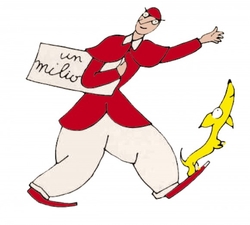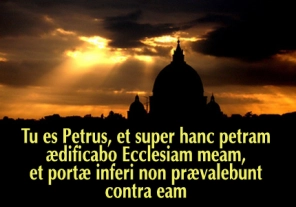Francis: True Disorientation (Edit: This time from the translator!) .

SECOND UPDATE! IMPORTANT!!
La vera riconciliazione è che Dio, in Cristo, ha preso i nostri peccati e Lui si è fatto peccato per noi. E quando noi andiamo a confessarci, per esempio, non è che diciamo il peccato e Dio ci perdona. No, non è quello! Noi troviamo Gesù Cristo e gli diciamo: ‘Questo è tuo e io ti faccio peccato un’altra volta’. E a Lui piace quello, perché è stata la sua missione: farsi peccato per noi, per liberare a noi”.
This is the Italian.
It is much different from the English translation. Whoever made the translation should convert to Catholicism, or ask someone before translating.
“La vera riconciliazione è che Dio, in Cristo, ha preso i nostri peccati e Lui si è fatto peccato per noi.”
“The true reconciliation is that God, in Christ, took on our sins and He made Himself sin for us.”
This is worlds apart from “became the sinner”. It simply means that Christ took our sins. This is a common expression. There is nothing scandalous in that. Whilst “became the sinner” sounds (and is) blasphemous and would sound in Italian just as atrocious as in English, the expression clearly used by Francis is common fare in Italian. The expression is repeated at the end of the period, and the same considerations apply.
On this: cessato allarme, “alarm ceased”. The translator should get twenty lashes, though.
Pretty much the same happens for the second scandalous part, the one about the confession:
“Noi troviamo Gesù Cristo e gli diciamo: ‘Questo è tuo e io ti faccio peccato un’altra volta’ “.
This is not a very brilliant Italian. It is a somewhat uncertain Italian, perhaps with dialectal nuances, but one understands the meaning. What he means to say is this:
1. “We find Jesus Christ (in confession) and say to him: “This is yours, I have sinned against you once again” “. Again, this is a world apart from saying “this is your sin, and I will sin again”. The first expression does indicate contrition, and the ashamed consciousness of having offended Christ. The second indicates total absence of contrition, and the shamelessly announced intention to offend Him again.
2. Alternatively, he might link to the expression used before, and say “through my sin I cause You to make Yourself sin for us again“.
It is difficult to say which is which, because in normal parlance no one become a thing (a sin), the expression being used only when speaking of Christ. I tend for the first because it seems to me to point out to contrition, the natural attitude in the confessional. The second, though, links directly to the theme of Jesus taking on Himself the burden of our sins.
Once again, the “ti” is slightly misleading, but in the context the orthodox meaning is clear to a mother tongue whatever the exact meaning of the phrase. I would have said “faccio peccato contro di te (un’altra volta)” (first version) or “ti faccio diventare peccato per noi (un’altra volta)” (second version) instead of “ti faccio peccato (un’altra volta)”. Bergoglio’s use sounds like a dialectal expression to me, or a colloquial regional way, or a slight imprecision. Francis is probably misled by similar usages of the Italian language (“ti faccio male”, “I (will) hurt you”; “ti faccio vedere”, colloquial for “you’ll see”; “ti faccio arrossire”, “I make you blush”, and the like). Perhaps Spanish has similar ways he “imported” in Italian.
No, there is no scandal here. There are a lot of scandals with this Pope. This Pope is a walking and talking scandal. But I cannot see any scandal here in what Francis has said.
Obviously, if we reflect this is the translation of the Vatican site, and apparently the German has the same blunders, we understand how the scandal was born. But no, you can go to sleep (I will do it presently) safe in the knowledge that a mother tongue Italian blogger, who took great scandal at the English version, finds the original a tad “uncommon” or “unclean” in the expression (not the “President’s Italian”, so to speak), but certainly understandable in a way that does not create scandal.
Semel in anno, we can say this is not his fault.
The most atrocious translation I have ever read, though. Particularly because it gave the speech a sort of inner, satanic coherence with the heretical or blasphemous double whammy. It goes to show once again the dangers of these off-the-cuff statements which, even when they are not utter bollocks out of Francis’ mouth, can become it out of hurried translations perhaps from people who do not really know what Confession is. One who goes to confession thinks thrice before writing a translation like that, but again in today’s Radio Vaticana the translator might belong to any religion, or none.
I will, therefore, now proceed to cancel my entire post, and all our comments.
I would say “rejoice”, but there is nothing to rejoice.
Francis remains as bad as he already was. He has always mixed orthodox statements with heterodox or heretical ones. It’s not that he has now magically transformed himself in an orthodox Pope. This statement was was orthodox in the original and became heretical in the translation, is all.
Mundabor
Posted on February 28, 2014, in Catholicism, Conservative Catholicism, Traditional Catholicism and tagged Confession, Pope Francis, V II. Bookmark the permalink. 2 Comments.




















Thank you very much for this. What remains horrifying, however, is that the vast majority of Catholics I know immediately and zealously defended the original English translation, pretty much simply because “the pope said it.”
Very true.
There’s nothing they would not try to bend or justify, just because it was allegedly said by the Pope.
M